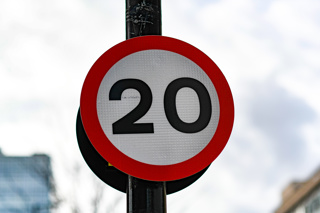The Government has announced that from late spring - an official date has yet to be revealed - it will be an offence to keep an uninsured vehicle, rather than just to drive when uninsured.
As a result, the onus is on the ‘registered keeper’ of a vehicle to ensure that it is insured at all times.
It means, says Jaama, that organisations that lease vehicles must inform their suppliers of every change relating to insurance documentation.
Historically, organisations have signed a ‘master hire’ agreement with their contract hire and leasing vehicle provider that includes a commitment to insure.
Jaama managing director Jason Francis said: “Contract hire and leasing companies can no longer wash their hands of the insurance responsibility when the new legislation comes into place as they will be responsible for ensuring that customers have correctly insured all vehicles.
“When the authorities run checks on vehicles and discover that a leased vehicle is uninsured it will be the contract hire company that is targeted.
“As a provider of software to a number of the UK’s leading contract hire and leasing companies we are actively helping them to update their internal administration processes. The onus is now on vehicle providers to ask their fleet customers to inform them every time there is the slightest policy insurance change.”
“Leasing companies should now be collecting policy insurance details from their customers and uploading them on to their vehicle management systems, which for some could prove to be an administrative burden as it is an issue they have not faced before,” said Francis.
“To further complicate matters, some customers may have several different insurance policies.”
Additionally, fleet managers, said Mr Francis, needed to be educated to provide their insurance policy documentation to their leasing company provider.
While, outright purchase fleets are the ‘registered keeper’ of vehicles and are therefore not facing the same administrative burden, Mr Francis advises that they should ensure that current insurance documentation is on the Motor Insurance Database (MID), which is managed by the Motor Insurers’ Bureau (MIB).
It has been reported that DVLA figures show that there could be as many as 53,000 company-owned cars not on the database - possibly due to administrative errors.
“With regards to companies that purchase their vehicles, insurance information should be sent by their policy provider or broker, but the onus is on the business to prove that vehicles are insured,” said Francis. “Our Key2 system enables insurance data to be instantly updated and a file uploaded direct to the MIB every time a change is made following the acquisition or defleeting of a vehicle.
“This process removes at a stroke the need for businesses to contact the MIB directly or manually enter details via the MIB website.
“The authorities have said that the MID will be systematically checked so that the levels of uninsured driving are reduced even further. Therefore, it is vital that leasing companies and all fleets have the administration processes in place to ensure they remain on the right side of the new law when it comes into force.”
The MIB in conjunction with the DVLA and British Insurance Brokers’ Association (BIBA) are reminding all vehicle owners of the law change, which means vehicles must be kept insured unless the DVLA has received notification that they are being kept off the road. Vehicles with a valid Statutory Off Road Notice (SORN) will not be required to be insured.
Currently every responsible motorist pays an average £30 each year within their premiums to cover crashes involving uninsured and untraced driver, says the Department for Transport. It is also estimated that uninsured and untraced drivers kill 160 people and injure 23,000 every year.
Latest estimates are that around 1.4 million (4%) British motorists drive uninsured. The penalty for driving without insurance is a maximum fine of £5,000 and six to eight penalty points. Around 242,000 offenders are convicted for uninsured driving every year.
When the new law comes into effect vehicle owners will receive a letter telling them that their vehicle appears to be uninsured and warning them that they will be fined unless they take action. If the registered keeper fails to insure the vehicle they will be given a £100 fine. If the vehicle remains uninsured - regardless of whether the fine is paid - it could then be seized and destroyed.



















Login to comment
Comments
No comments have been made yet.